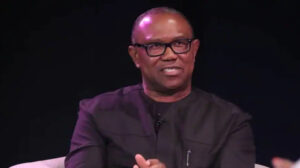Peter Obi, the Labour Party’s presidential candidate for 2023, expressed grave concerns on Tuesday regarding the recent collapse of Nigeria’s national power grid, labelling it a national disgrace and a clear sign of leadership inadequacies in the country.
Obi emphasized the need for urgent reforms within Nigeria’s power sector, stating that the latest grid failure has laid bare the vulnerabilities of the nation’s electricity infrastructure.
In a message posted on X, he remarked that the recurring failures of the power grid reflect a government that has neglected the welfare and economic prosperity of its citizens.
He stated, “Once again, the national grid has failed, leaving a significant portion of the country in darkness and highlighting the fragility of our power systems.”
“This ongoing disaster is a source of national embarrassment and a stark indication of failed leadership and ineffective policy execution at the highest levels.”

Obi lamented, “How much longer must Nigerians tolerate a system that cannot deliver one of the essential elements required for a thriving society?”
He underscored the critical role of reliable power supply in driving economic transformation, particularly for small and medium-sized enterprises (SMEs), which are vital for job creation and significantly contribute to the nation’s GDP.
“Currently, we rank as the fourth-largest economy in Africa, having dropped from the top spot due to years of leadership failures, including the ongoing power crisis, especially when we compare ourselves to smaller economies.”
He pointed out that South Africa, now the continent’s leading economy with a GDP of approximately $400 billion and 30% of Nigeria’s population, produces and distributes over 40,000 megawatts of electricity.
He further noted that Egypt, the second-largest economy with a GDP of around $350 billion and half of Nigeria’s population, also generates over 40,000 megawatts.
“Algeria, the third-largest economy, boasting a GDP of about $300 billion and 20% of our population, generates over 50,000 megawatts of electricity.”
In contrast, Obi highlighted that Nigeria, despite having a larger population than these three countries combined, generates and distributes less than 10,000 megawatts, which is frequently plagued by failures and outages.
“This disparity in power generation showcases the profound governance deficits that hinder our progress and potential,” he asserted.
“It is imperative that we implement urgent and comprehensive reforms. Nigerians deserve a government that prioritizes tangible measures of development.”



